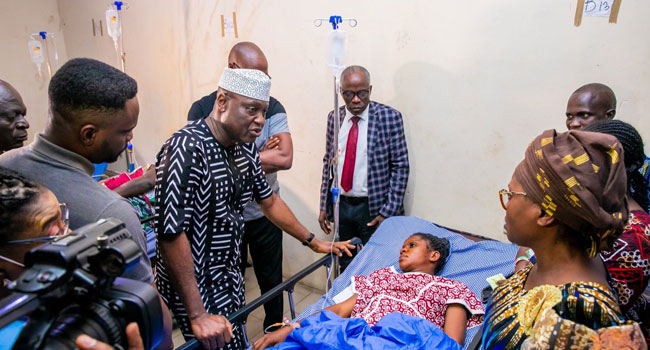The Supreme Court has fixed tomorrow, 14th July 2020 for the hearing of the suit brought by the Attorney- General of Ekiti State, Olawale Fapohunda against the Attorney-General of the Federation and Attorneys- General of Lagos and Ogun States respectively.
In the suit brought pursuant to Order 3 rule 6, Supreme Court Rules (as amended in 1999), section 232(1) of the 1999 constitution (as amended) and sections 1(3), 36(3) and (4) of the 1999 Constitution of the Federal Republic of Nigeria (as amended), the Attorney-General of Ekiti State is asking the Supreme Court to determine whether the directive issued by the Attorney-General of the Federation, vide its directive issued on the 20th of April, 2020 to the Head of Courts at Federal and States level, in conjunction with Guidelines, issued on the 7th May,2020, by the National Judicial Council specifically as it relates to the conduct of virtual proceedings in court is not only a violation of the federalism provisions of the 1999 Constitution but also in violation of the constitutional provisions on fair hearing specifically as it relates to the conduct of criminal trials in public.
READ ALSO: Compel Govs To Fund Healthcare With Security Votes, SERAP Asks Court
The Ekiti State Attorney- General is also asking the Supreme Court to set aside, or strike down so much of the said directive of the Attorney-General of the Federation and National Judicial Council Guidelines, as it relates to Virtual or Remote Court sittings to the extent that they purport to be binding on the Ekiti State High Court for being inconsistent with Section 1(3), 4(6), 5(2), 6(2), 36(3) and (4), 272 and 274 of the 1999 Constitution of the Federal Republic of Nigeria (as amended).
The issue of the constitutionality or otherwise of remote or virtual court hearing has dominated national discussion since the publication of the guidelines of the National Judicial Council which recommended virtual court proceedings for courts in response to the COVID-19 Pandemic.
Opinion has been divided among lawyers on the legality of the directive. A number of High Courts including those in Lagos, Ogun, and Borno States have proceeded to implement the guidelines while many States have been adamant in their opposition to the directive insisting that only a constitutional amendment or pronouncement by the Supreme Court can ensure the legality of virtual court hearings.





